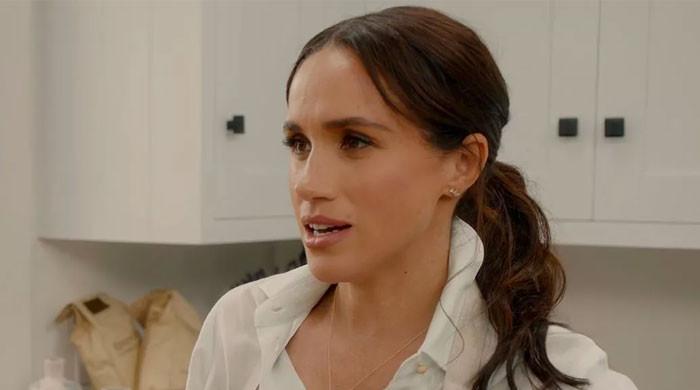The more religious Canadians are, they more then tend to vote Conservative. The less religious they are, the more they lean towards the NDP. Read this article for free: Already have an account? To continue reading, please subscribe: * To continue reading, please subscribe: *$1 will be added to your next bill.
After your 4 weeks access is complete your rate will increase by $0.00 a X percent off the regular rate. The more religious Canadians are, they more then tend to vote Conservative.

The less religious they are, the more they lean towards the NDP. Read unlimited articles for free today: Already have an account? The more religious Canadians are, they more then tend to vote Conservative. The less religious they are, the more they lean towards the NDP.
That, in broad strokes and with some exceptions, is the conclusion reached by Sarah Wilkins-Laflamme, a professor of sociology at the University of Waterloo, after analyzing the 2021 Canadian Election Study by Statistics Canada (the most recent information on voting available). “An individual’s strong religious beliefs and active involvement in a religious group affects their voting behaviour,” she said, adding the more traditionally religious a person is, the more likely it is they will support Conservative candidates “who are perceived to share their values.” Wilkins-Laflamme, who studies the impact of religion on Canadian society, is quick to note that while Canada is not like the U.
S. when it comes to religion and voting, religion still plays a role in elections in this country — even if it isn’t as easy to see. For her, religion is as important as other factors such as age, gender, employment status and education when it comes to elections.
“It’s pretty high up there,” she said. “It’s a stronger factor than what many people think.” The Study, which was conducted by Statistics Canada, found that 33 per cent of people who attended religious services once a month or more voted federally for the Conservative Party, while 28 per cent voted Liberal and 14 per cent went to the NDP.
Two per cent voted Green and five per cent cast a ballot for the People’s Party of Canada (PPC). Of those who only attended maybe once a year or so, the results are much closer with 29 per cent voting Conservative, 28 per cent for the Liberals, 17 per cent for the NDP, two per cent Green and three per cent PPC. It’s when you get to those who aren’t religious at all that a bigger difference becomes clear.
In that category, the NDP is in the lead with 26 per cent of voters, followed by the Liberals at 23 per cent and the Conservatives at 18 per cent. That finding is significant, said Wilkins-Laflamme, who is also director of Canada’s Institute for Religion, Culture, and Societal Futures. As the country becomes less religious — about 35 per cent of Canadians say they aren’t affiliated with any religious group today, compared to 16 per cent in 2004 — the size of the more conservative religious pool is shrinking.
Combined with how younger Canadians tend to be less religious than their elders, this could benefit the NDP and other left-leaning parties in the future, she said. Getting deeper into the data, the Study found some exceptions. For example, Anglicans, Catholics and United Church members who went to church more than once a month were more likely to vote Liberal than Conservative or NDP.
Members of those groups who went less often were more likely to vote Conservative. As for evangelicals, they tend to vote Conservative, with Baptists at 38 per cent, Pentecostals at 41 per cent, Christian Reformed at 39 per cent and those who go to non-denominational churches at 43 per cent. But unlike in the U.
S., where evangelicals were more united in their voting — a majority support the Republican Party and 80 per cent voted for Donald Trump in the last election — Canadian evangelicals are less uniform. Many evangelicals also vote for the Liberals, NDP and Greens.
As for the smaller religions in Canada, their members tended towards voting for the Liberals, with 33 per cent of Buddhists, 43 per cent of Hindus and 60 per cent of Sikhs voting that way. For Jews, the vote between Liberals and Conservatives was evenly split in 2021, with 37 per cent voting Liberal and 35 per cent for the Conservatives while 20 per cent voted NDP. For Muslims, it was the opposite, with 57 per cent going Liberal and only four per cent for the Conservatives.
Twenty-three percent were NDP. However, the Oct. 7 attack and the impact of the war in Gaza prompted a change.
A survey by Angus Reid last year found the Liberals’ efforts to offer a balanced response to the Israel-Gaza conflict cost them support among both Muslims and Jews. Muslims have turned towards the NDP, while Jews are showing greater support for the Conservatives. While the data shows what is happening when it comes to religion and voting, it can’t say why.
Why do more frequent church-goers vote Conservative, while others vote Liberal or NDP? It could be because of what they hear in sermons, or the stances taken by their denominations and leaders. But it also could be due to other factors such as whether people are rural or urban, the effect of social media, or the impact of religious influencers in the U.S.
One thing for sure is that this election is going to be very different because of Donald Trump. That could change how some religious Canadians vote — some may switch allegiances to vote strategically for one party or another. We will have to wait a few years for the next election study to get more information about that.
[email protected] John Longhurst has been writing for Winnipeg's faith pages since 2003.
He also writes for Religion News Service in the U.S., and blogs about the media, marketing and communications at Making the News.
Our newsroom depends on a growing audience of readers to power our journalism. If you are not a paid reader, please consider . Our newsroom depends on its audience of readers to power our journalism.
Thank you for your support. John Longhurst has been writing for Winnipeg's faith pages since 2003. He also writes for Religion News Service in the U.
S., and blogs about the media, marketing and communications at Making the News. Our newsroom depends on a growing audience of readers to power our journalism.
If you are not a paid reader, please consider . Our newsroom depends on its audience of readers to power our journalism. Thank you for your support.
Advertisement Advertisement The Free Press acknowledges the financial support it receives from , which makes our coverage of religion possible..
Entertainment

Religious beliefs affect who people vote for, expert finds

The more religious Canadians are, they more then tend to vote Conservative. The less religious they are, the more they lean towards the NDP. That, in broad strokes and with [...]














